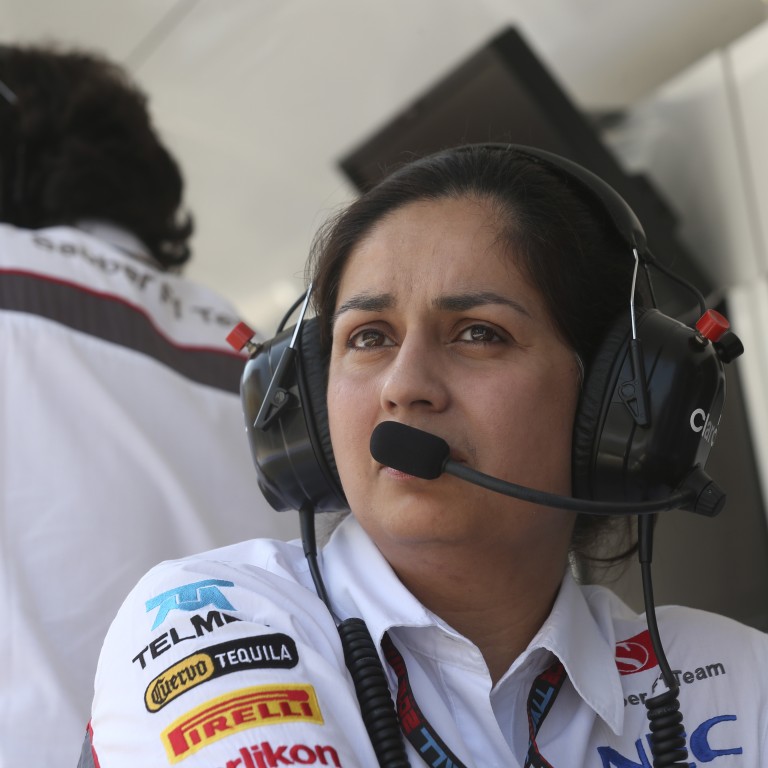
Haves and have-nots of Formula One
Small and middle-ranking teams are struggling to compete in a far from level playing field
Formula One teams agree that the sport is costing them too much - they just can't find a consensus on what to do about it.
In the paddock at the season-ending Brazilian Grand Prix, teams in motorsport's biggest series disagreed about how to tackle surging costs which former team owner Eddie Jordan said could lead to "a huge implosion if something isn't done quickly".
Small and middle-ranking teams, including Sauber and Lotus, both suffered cash crises this season and are calling for a cap on spending with sanctions similar to a new agreement in European soccer.
If you are not that good, it's very difficult for you to attract sponsors
But Red Bull, which claimed its fourth straight constructors' and drivers' titles, and McLaren, a Formula One regular since 1966, believe that a cap isn't practical because teams would find ways around rules.
"I would love to see costs get under control, of course," said Red Bull head Christian Horner. But a cap would be "impossible to police because there are so many different structures, so many different entities. I just can't see how it can be policed".
The financial disparity can be seen in the accounts of Red Bull, whose world champion Sebastian Vettel won his single-season record-extending ninth consecutive race at Sao Paulo, and Marussia, whose cars occupied the last two places on the grid at the start of the Brazil race.
Red Bull Technology, a company that designs and manufactures the championship-winning car, had sales of £231.9 million (HK$2.91 billion) and costs of £201.3 million last year. Red Bull Racing, a subsidiary that manages the team, had sales of £176.3 million and costs of £170.3 million.
Manor Grand Prix Racing, the parent company of Marussia, had sales of £28.3 million and costs of £54.4 million during the same period. Red Bull secured 596 points this season while Marussia failed to get one.
Earlier this year Red Bull, Ferrari and McLaren agreed on a deal with the series owners that sees the teams share US$180 million in signing-on payments, while Mercedes and Williams also reached agreements.
Smaller teams can enter a vicious cycle of overspending to gain in the standings and clinch sponsorships, according to Sauber boss Monisha Kaltenborn. Swiss-based Sauber was saved by Russian investors in July as it struggled to meet debts, including the salary of driver Nico Hulkenberg.
"If you are not that good, it's very difficult for you to attract sponsors," said Kaltenborn, the sport's only female team principal. "It's a very, very vicious cycle and very, very difficult to get out of it."
The central agreements the sport's biggest teams signed to remain in Formula One risk destabilising the future of the series, according to Jordan, a BBC commentator.
"There's five teams that get money and there's others that don't," he said, referring to the competitors that get signing-on fees. "If you're talking about a level playing field, it needs to be a complete start afresh."
Formula One's 83-year-old chief executive officer Bernie Ecclestone says the teams should blame themselves if they're not comfortable with the series' financial arrangements.
"They have a contract until 2020 which they signed," Ecclestone said. "They shouldn't have signed it if they didn't agree with it. However much you give these people it won't be enough. They just spend it."
Lotus principal Eric Boullier said his team and similar competitors had no choice and had to sign the agreement once the top teams broke ranks.
"We have absolutely no power to be in a position to negotiate," he said.
Next season will be the first with a new category of engine, something that will add a minimum of US$15 million to team's budgets, according to Kaltenborn. Those costs will be inflated further as a ban on in-season testing is dropped. Red Bull's Horner said teams had the opportunity to veto the costly changes.
"Most of the teams agreed to have new engines next year which has inflicted a huge amount of cost on them," he said. 'All of those teams agreed to do more testing next year, which has inflicted even more cost on them. I'm afraid I have very little time for people complaining about costs who do very little to help themselves."
Although teams have signed terms through to 2020 it's likely the lopsided financial settlement will be reviewed, said Bob Fernley, deputy director of Force India, which finished sixth this season.
"A week in Formula One is a long time and things could change very quickly," he said. "I think there will be some changes. It will come to the realisation that the enrichment of select teams was perhaps the wrong way to go."
